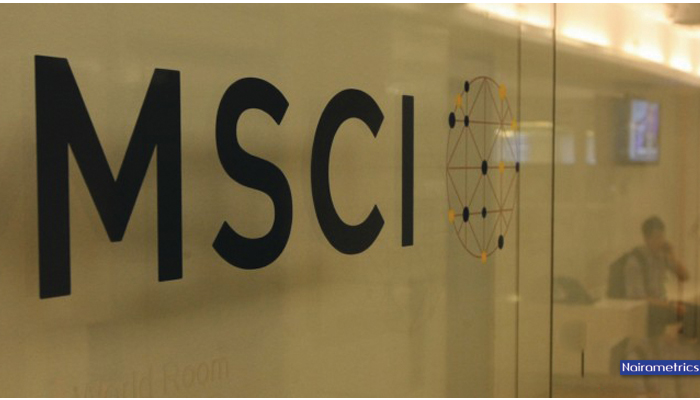Last week, and for the second time this year that the decision has been closely watched, MSCI Inc. announced it has retained Nigeria in its benchmark frontier-index. However, it is not yet uhuru as the index provider formally declared plans to ready Nigeria for potential reclassification to Standalone status1 during its 2017 Annual Market Classification Review in June. The decision to consider Nigeria’s Frontier status first emerged in April 2016 when CBN’s restriction on FX sales and subsequent FX market illiquidity created a clog in the repatriation of foreign capital—violating a critical provision for countries in the Frontier index. Though MSCI noted the positive impact of recent liberalization of the Nigerian FX market, which we believe underpins its decision to extend its review period for Nigeria, the still relative FX illiquidity remains a concern for the index provider.
Since 1997, only Ukraine (September 2015) and Bulgaria (September 2016) have been reclassified from the MSCI Frontier market to Standalone Index. Ukraine’s removal stemmed from an amendment to its laws which prohibited foreign investors from repatriating funds received from the sale of equity securities issued by Ukrainian entities and dividends earned on equity investments. For Bulgaria, reclassification was because the number of securities classified by MSCI as “investable” had dropped below the minimum required for inclusion in its Frontier benchmark. Indeed, looking through the MSCI report, the key sticking point for Nigeria is that the index provider interpreted the tight FX situation in H1 16 as a form of capital control even though no explicit capital controls existed. To our minds, MSCI’s resolution to delay its decision can be seen as some sort of holding period to see how FX market trends pan out given concerns at the beginning of the floatation, amidst alleged behind-the-scenes manipulation by CBN. On this wise, the apex bank has since allowed greater flexibility and raised interest rates which has provided strong attraction for FPI inflows into fixed income markets. For evidence, following the hike in policy rate in July 2016, portfolio flows returned to Nigeria’s bond market (after absence of flows for five consecutive months) h total flows of $20 million being the highest since exclusion of Nigeria from JP Morgan’s bond index in September 2015. In addition, increased prospect of foreign debt (AFDB: $4.1 billion, Eurobond: $1 billion) should help bolster the country’s FX reserves which holds positive connotation for FX market liquidity.
In essence, CBN’s preference for attracting FPI flows and fiscal authorities newly with found proclivity for external borrowings to finance its budget deficit suggest that the policy stance of Nigeria’s policy managers is to increasingly keep the doors open vs. an explicit capital control. Furthermore, it is important to note that FX market illiquidity did not result in ejection of Argentina and Egypt from the MSCI indices despite these countries’ recent dollar shortage issues. More so, MSCI, with its nature of the Frontier index categorization understands that countries do not have frictionless FX markets, so should Nigeria’s FX market become less restrictive post June’s liberalization (which it seems to have), an exclusion is even less likely. Overall, we see limited prospects for a re-classification to a standalone status for Nigeria.
Whilst the retention should ordinarily be perceived as good news for naira equities, it is unlikely to spur a resumption of FPI activity on the domestic bourse as foreign investors remain perturbed with the country’s recessionary environment. Indeed, more investors are likely underweight Nigeria with FPI share of transactions at 44%2—first time below 50% since 2010. Thus, it appears improbable that Nigeria’s index status would materially change sentiment towards domestic equities with activities in the oil markets and policy direction by the country’s economic managers more likely to influence risk appetite.
